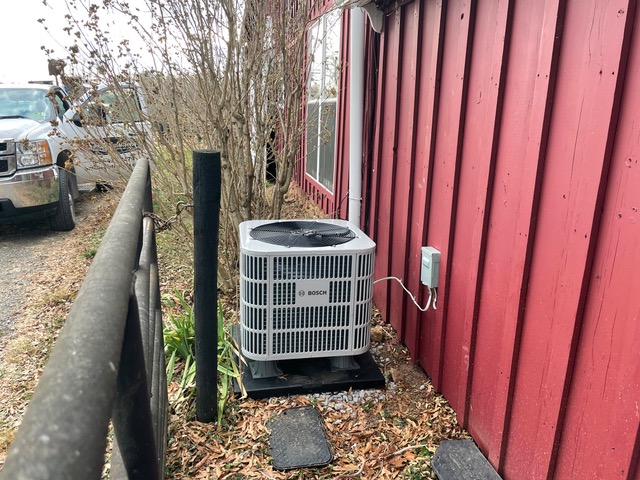

When inspecting the HVAC system while buying a home…
Age of the HVAC system: Determine the age of the heating and cooling equipment to understand its remaining lifespan and potential replacement costs.
Maintenance history: Inquire about the maintenance records to ensure the HVAC system has been regularly serviced and well-maintained.
Professional inspection: Consider hiring us to thoroughly assess the system’s condition and identify any underlying issues.
Exterior unit condition: Inspect the outdoor components, such as the condenser and exhaust vent, for signs of damage, rust, or poor installation.
Thermostat functionality: Test the thermostat to ensure it is responsive and functioning properly.
Air filters and ductwork: Check the air filters and inspect the ductwork for leaks, damage, or insulation problems.
Heating and cooling test: Turn on the heating and cooling systems during the inspection to verify their functionality and listen for unusual noises.
Even airflow: Check the vents and registers for even airflow throughout the house, which indicates a well-balanced system.
Water damage: Look for water stains or mold growth around the HVAC system, indicating potential leaks or drainage issues.
Energy efficiency: Inquire about the system’s SEER and AFUE ratings to assess its energy efficiency and potential operating costs.
Active warranties: Ask if any warranties are still valid on the HVAC equipment, which can be beneficial for future repairs.
Indoor air quality: Observe for signs of poor indoor air quality, such as lingering odors, excess dust, or mold growth, which could be related to the HVAC system.
Recent repairs or upgrades: Find out if there have been any recent repairs, replacements, or upgrades to the HVAC system.
Climate and needs: Consider the local climate and your specific heating and cooling requirements to ensure the system is suitable for the property.
Energy-efficient features: Look for energy-saving features like programmable thermostats or ENERGY STAR certified equipment.
Past utility bills: Request past utility bills to get an idea of the average energy consumption and potential costs.
Future maintenance and costs: Discuss expected maintenance needs and potential repair expenses with us.
Negotiation potential: Evaluate if any HVAC issues warrant negotiation with the seller for repairs or price adjustments.
Multiple quotes for replacements: If a new HVAC system is needed, obtain quotes from both us and different contractors to compare options and costs.
Compliance with local codes: Ensure the HVAC system meets local building codes and regulations.
By carefully considering these points during the inspection, you can make an informed decision about the HVAC system’s condition and potential implications for your new home.